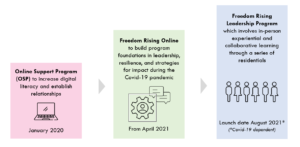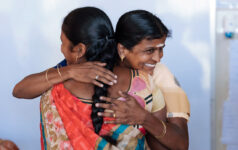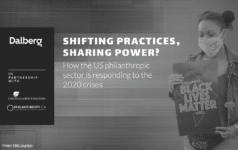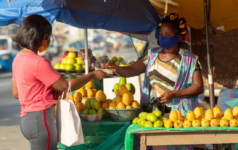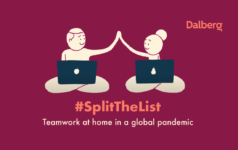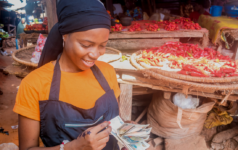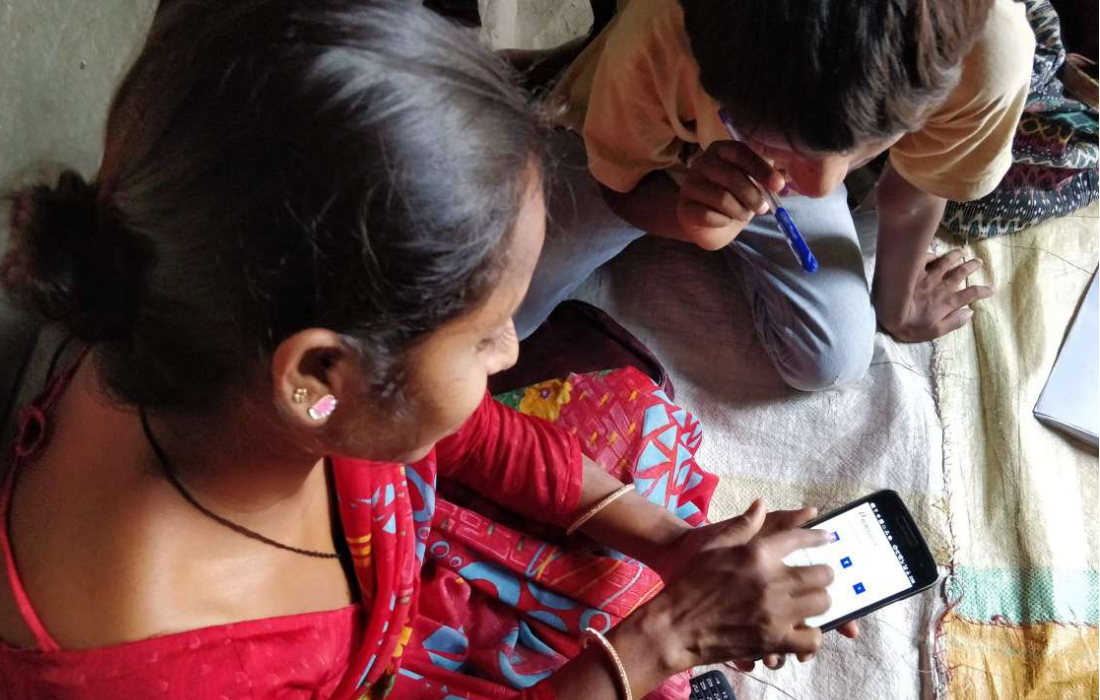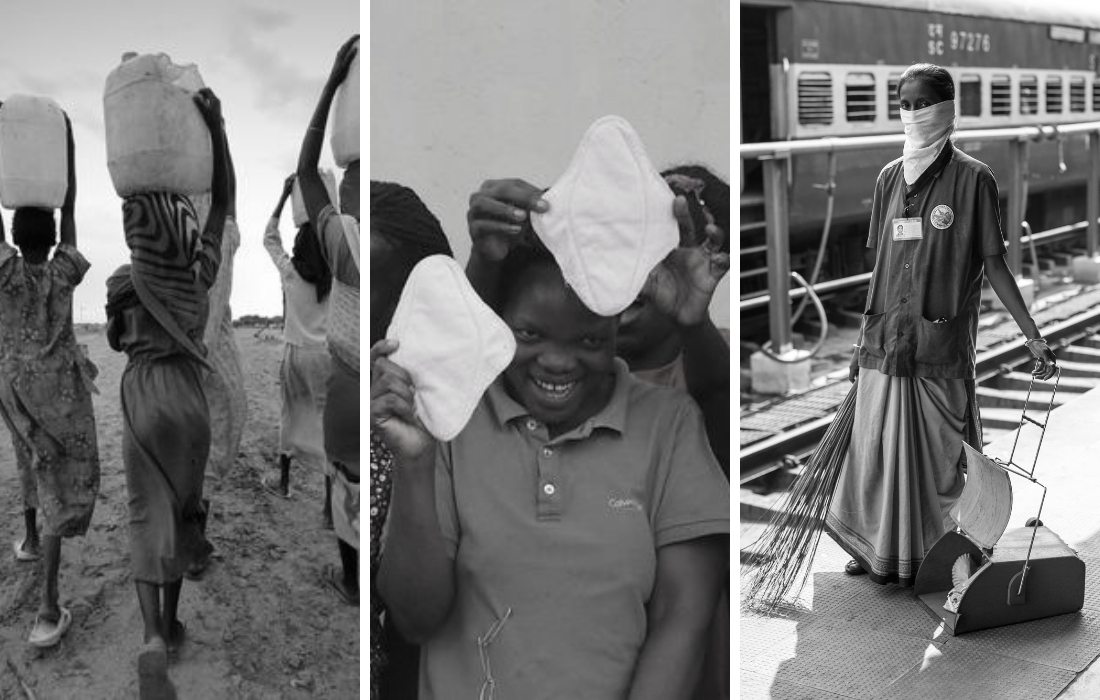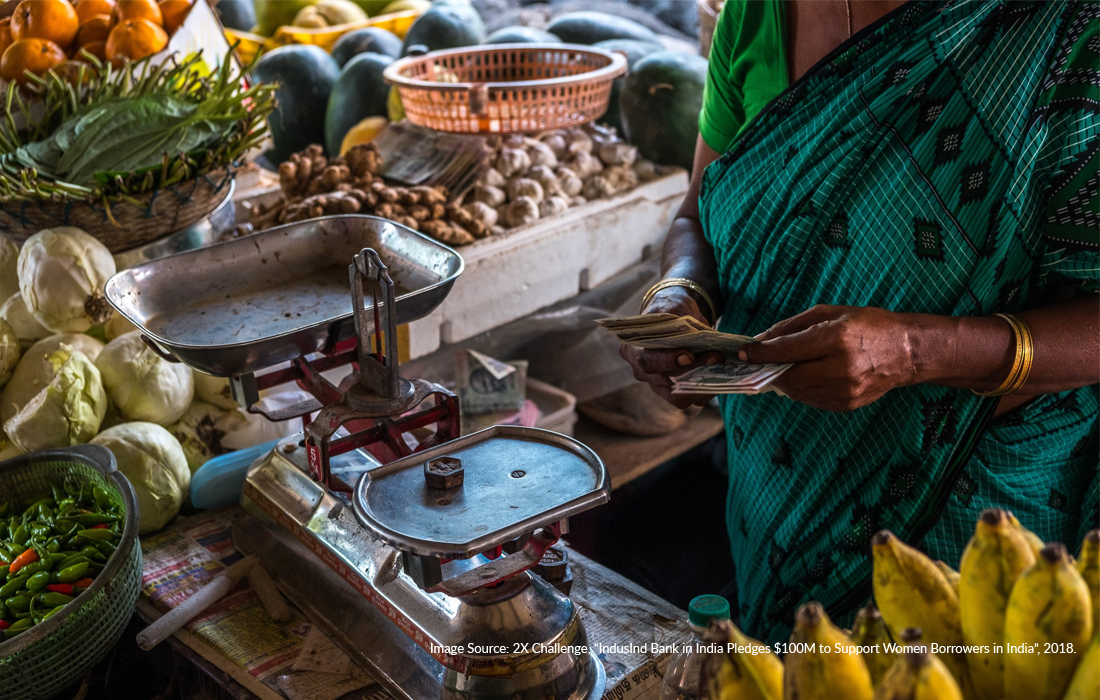Dalberg uses cookies and related technologies to improve the way the site functions. A cookie is a text file that is stored on your device. We use these text files for functionality such as to analyze our traffic or to personalize content. You can easily control how we use cookies on your device by adjusting the settings below, and you may also change those settings at any time by visiting our privacy policy page.
A bold new initiative piloting in India is unleashing the leadership potential of women and survivors, supporting them with the skills and networks needed to build a movement to end slavery in their communities and beyond.
Around the world today, an estimated 40 million people live in conditions akin to ‘modern slavery’, from girls forced into marriage or sex trafficking, to labourers and migrants working in exploitative conditions in fishing, factories, and fields. Over 70% of victims are women and girls, with gender discrimination being a key factor driving their exploitation. Yet, very few anti-slavery organizations acknowledge or support women and survivors as leaders, even when their perspectives are needed most. Too often these women are not valued in their workplaces or homes – and the idea of viewing themselves as a “leader” feels too radical. Freedom Rising is a new initiative – sponsored and championed by the Freedom Fund – that aims to change this.
Freedom Rising will break new ground by focusing on women and survivor leaders who have traditionally been excluded from positions of leadership. It will aim to help participants in their unique leadership journeys through an enriching 12 months of residential training, stimulate them to foster partnerships between different organisations, and nurture a supportive alumni network of young women and survivor leaders. In the words of one woman leader, “Women must discard fear. They must firmly believe they can achieve anything.”
The program is being carefully designed to meet participants where they are at, offering content grounded in their local context and delivered in leaders’ own languages. Dalberg is proud to be a design and delivery partner alongside the Freedom Fund. The program is unique in two important ways – what it offers, and how it delivers. It will offer powerful modules that focus on the value of lived experience and shifting social norms, such as seeing oneself as a leader, gender and caste-based discrimination in everyday lives, navigating power dynamics, and the role of trauma and resilience in leadership. It aims to deliver an immersive experience through experiential facilitation such as dance movement therapy, a balance of rigor and reflection individually and in groups, hands-on mentorship from experienced role models, and a connective thread in-between residentials that allows for applied learning on the job.
In building such a program, Freedom Rising hopes to be transformative. By supporting frontline leaders individually, the program will strengthen and diversify anti-slavery organizations, all while aiming to build a stronger and more inclusive anti-slavery movement that emphasizes collaboration and continuity.
Women and survivor leaders share their moving ambitions in Freedom Rising’s launch video, released on 2 December 2020. Many feel ready to make a difference. “Since I came to work as a social worker, I have transformed myself into a warrior to protect women and children. When I think of it I feel very happy and proud to know that this movement is going to stand exactly for this,” says one woman. Several leaders recall their own survival journeys, described in the words of one as: “I thought it was my fate. At first I picked cotton, and then I joined the scheme in a cotton mill. We had no time to eat or wash our hands. We couldn’t be free. With no freedom we were like prisoners or bonded slaves.”
Designing a path for change
In consideration of Covid-19, the program has been restructured into three parts, initially designed for delivery online and eventually in-person, and will launch in phases between December 2020 and the end of 2021.
Once learnings are synthesized from the initial pilot of the program, conducted in 2021 with 25 grassroots organizations in South India, the program design will be globally adapted for a 2021-22 rollout to various locations where the Freedom Fund is active, including other parts of India, Nepal, Thailand and Ethiopia, empowering an entire new generation of frontline leaders.
Dalberg and Freedom Fund have drawn from extensive observation, research and analysis of frontline field visits in different regions, and interviews with potential participants and experts, to inform the program’s development. Consultations with local and international organizations such as CORO, Kolkata Sanved, Sanar, and Survivor Alliance, as well as individual experts such as ex-CREA Sanjana Gaind, experiential educator Minakshi Sharma, learning and development consultant Pushpa Bhagyam, and InnoBridge’s Mustafa Moochhala, were instrumental in developing the curriculum and program design. To fully understand training needs, Dalberg and Freedom Fund conducted group discussions and interviews with potential participants across South India (Coimbatore) and North India (Patna).
Some of the learnings and insights from field visits had unexpected implications for the curriculum and program structure. In one example, while there was a willingness to promote women, the lack of technical skills such as computer skills, report writing, and a knowledge of the law and English, meant women had no realistic pathway to leadership within the organization. Dalberg and Freedom Fund recognized that it would be necessary to link the Freedom Rising program with Freedom Fund’s separate technical capability building, as women and survivors in the region would need more than the offered skills to truly advance up the chain. As a result, the online programs intentionally carve out space to meet this need, and deliver lessons in advocacy, fundraising, and other technical skills.
Another challenge that added complexity to program development was that priorities varied hugely among organizations themselves, depending on their operating context. Those with a more antagonistic relationship with government felt the urgent need for support from a movement, while those already mobilising villages felt that a focus on the self and team was of greater importance in a program. This differing weightage of movement-building versus the self highlights the challenge of catering to the different needs of partner organizations in any program.
Steps towards ending modern slavery
As a new year begins, the Freedom Rising program design is ongoing, and data measuring results and informing program adjustments can be expected from the end of January 2021. While the skills taught in the Freedom Rising program will be rooted in an anti-slavery context for the most part, the hope is that this program will serve as an inspiration for frontline worker training and empowerment across different sectors and types of leadership.
For the fight against modern-day slavery to succeed, a bold move was needed to catalyse change. A woman leader captures the essence well: “I should be able to help all women know their rights, and be brave, bold and achieve in all fields. I must help them do that. That is my ambition.” Freedom Rising is arming leaders, especially women and survivors, with the skills and networks that will help them find their voice and trust in their own ability to lead. This is a critical next step in the fight against exploitation in communities and beyond, and one that is long overdue.
PHASE 2 PILOT UPDATE
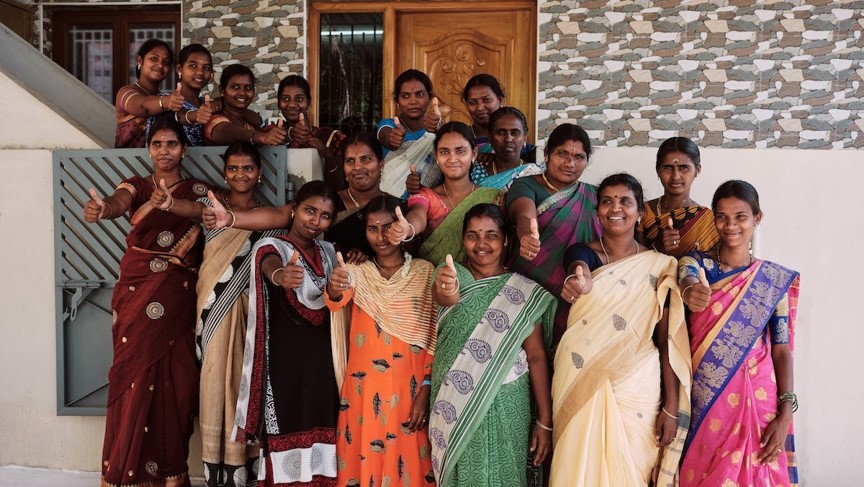
As part of the ongoing rollout, The Freedom Fund recently launched its second stage of the pilot — called ‘Freedom Rising Online’ — which is designed for both emerging and established leaders. It will introduce key leadership skills and concepts while helping build program foundations centered around resiliency and strategies for impact amid recovery from the Covid-19 pandemic.
The program aims for an immersive experience for women and survivors that allows for applied learning and will continue to scale and grow while keeping to its mission of serving as a catalyst for a stronger, more inclusive movement against modern slavery.

